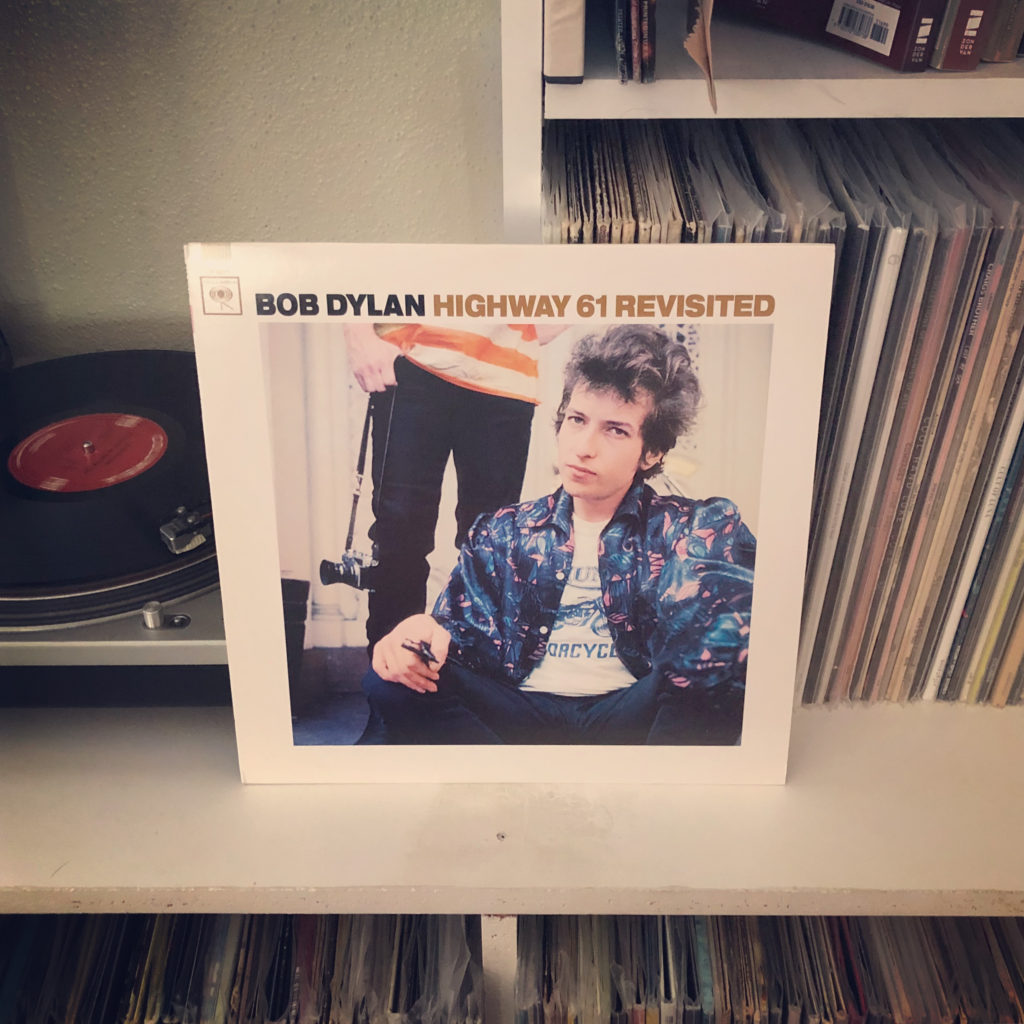 Despite his affirmation of Highway 61’s significance as the trotting grounds of country blues legends, this album ends up being just as ironically titled as Bringing It All Back Home, on which Dylan brought just about nothing “Home,” but fled from his roots in a fury of rock bands and surrealism. In many ways, Highway 61 Revisited is Home’s Amnesiac–a further exposition on a previous album that had more to say than one groundbreaking album could say.
Despite his affirmation of Highway 61’s significance as the trotting grounds of country blues legends, this album ends up being just as ironically titled as Bringing It All Back Home, on which Dylan brought just about nothing “Home,” but fled from his roots in a fury of rock bands and surrealism. In many ways, Highway 61 Revisited is Home’s Amnesiac–a further exposition on a previous album that had more to say than one groundbreaking album could say.
While Dylan traipses through Revisited with the same band he did on Bringing It all Back Home, it’s less reactionary than its predecessor. The structure is used more as a stylistic addition than as an ax to split his protest singer persona into splinters.
In fact, that protest singer even returns from the fog of Dylan’s absurdist, but now his grievances are much more focused, whether they be targeting President Johnson (“Tombstone Blues”), the media (“Ballad of a Thin Man”), jilting ex-lovers (“Like a Rolling Stone”), or fractured versions of himself (depending on your interpretation of “Rolling Stone”). The protestant spirit of The Times, They Are A-Changin’ is frequently paired here with the lucid surreality of Bringing it All Back Home and the humor of Freewheelin’ to pointed effect (i.e. “[the Commander in Chief] says ‘The sun isn’t yellow, it’s chicken,’” making a succinct statement on LBJ’s policies).
But, I’m finding it incredibly hard to write about Bob Dylan, because what is there really to say anymore? And there’s not enough time to dissect his lyrics carefully enough to extract everything that he put into them in the first place.
And beyond that, I’m nearly fifty years removed from the world Dylan was writing and performing in during these early days. But the records still endure, and it has far less to do with whether he was playing acoustic or electric or if his lyrics are clear or absurd or if he was writing protest songs, blues songs, or pop songs than with the simple fact that Bob Dylan is a genius of unparalleled social importance, and his is a genius only matched by his prolificacy—between Freewheelin’ and 61 was a mere twenty-seven months—leaving us with enough to parse to fill small to moderately sized libraries with the books written dissecting his songs.
And in the face of his genius, I’m finding that I have less and less to say about the more and more he’s saying.